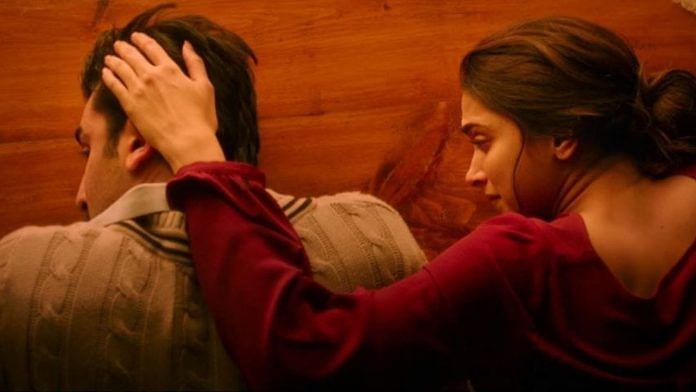The female narrator’s extramarital ‘affair’ of one afternoon invoked anger and disbelief in a male reader with whom I was personally acquainted; how could the wife of an important and good man have an irresponsible, even if very brief, affair with just anybody, he opined—until I had to remind him of the literary, social and psychological context of the female narrator’s actions, her lifelong guilt, and that the ‘anybody’ in question was perhaps a ‘good man’ too, even if not as rich or ‘important’ as the husband. It also had to be pointed out to the reader in question, whose life choices we had been aware of for many years— and this is what had made me especially indignant—that he expected a fictional married woman in a novel to adhere to the laudable principle of marital fidelity, even for that one ‘errant’ afternoon, that he himself had never found necessary to adhere to over the course of his lifespan, in his real life as a married man. Interestingly enough, what had excessively troubled this male reader did not trouble many women, readers as well as reviewers, who interpreted the novel’s women to be ‘intelligible female characters with relatable predicaments.’
Similarly, the character Naina’s decision to leave her relationship upset another male reader who otherwise loved the novel; how, he asked, could Naina end a sweet love-story just to pursue her career? ‘Your ideology got in the way of their love,’ he stated flatly, referring to my academic training in Women’s Studies, if not feminist beliefs. I conceded that writing is as deeply political an act as is reading; what we write and how we read are squarely situated within inherited and inhabited political and historical frames. Through our reading and writing practices, we either conform to or contest these frames; more frequently, we do both. In that sense, no art can be entirely devoid of ideology, not even dreamy romantic fiction, I said. Besides, the novel’s plot treats dance not just as a career or a profession—such bland, bland words—but also as passion, and resistance, despite the vicissitudes of history and the pathological framing of the courtesan tradition during the colonial era through a battery of imperialist laws, institutions, and medicalized narratives.140 ‘But still,’ he replied. Naina doesn’t want to end the relationship so much as she wants to find her own identity, I argued. Being from the walled city, the social class difference between him and her makes her uncomfortable in his boozy, glamorous South Delhi world; she wants to be more than just a rich man’s wife, and strikes out on her own despite her fears. That takes courage, I said. But still, my friend maintained.
Fluctuating between indignation and angst—was he right? Was he wrong? Was it just a matter of perspective?— the writer in me re-read certain portions of the book where the first character, the narrator, speaks of her troubled childhood, foster-homes, the brief joys of a whirlwind wedding—‘a time of such wild happiness, hotels with pretty balconies, beachfront restaurants, dancing in tune with the turquoise, tumbling music of the waves, foam in our faces, knolls of sand and seashells at our feet’ (p. 213). And then, neglect, hugging her own silences once again, feeling closer to an old city than to her husband—‘Like me, this city is full of buried worlds; it speaks to me, it understands’ (p. 10)— her yearning for a ‘happy song’ (p. 110), the complexity of her choices, her illnesses, her guilt.
Then, the passages where the second character, Naina, is afraid to leave, but not afraid enough to stay; and when her boyfriend asks her a hard question—‘Do you really think it’s going to be a cakewalk abroad? No discrimination, an equal world, where you fit right in?’—she responds with, ‘I’ve never lived in an equal world. I’ve never fit in. Not
with my own people. Not with yours… I want to see new places, dance. I have hope. If we don’t have hope, what do we have?’ (p. 204) ‘And for that, you want to end our relationship!’ he says, to which she answers, ‘It doesn’t have to be forever. Afterwards…’ (p. 204). Tearful, she says it’s her fault—‘I’ll never forgive myself for causing you, us, this pain’—and he responds with a Ghalib couplet: ‘Kee mere qatl ke baad usne jafaa se tauba, hae uss zud-pashiimaan ka pashiimaan hona’ (p. 204). Can their relationship be resumed if they remain in love with each other, he asks; she says yes. He wants to know if they will remain friends in the meantime; she reaches for his hand, their meeting thus ending on a note of hope. ‘Stillness fell upon them, as weighty as a promise. The two of them walked in silence, along the still, moonlit landscape, and through the drowsing trees’ (p. 204).
Do these passages signal the death of love-in-fiction, wrought by heartless female characters? (Or even heartless female novelists—I, she—wielding the pen?) Butstillbutstill came the resounding answer, through the frozen stillness of winter nights, from across the seven seas, until I realized, with a shiver, where the problem lay: in the gender of who waits for love.
 This excerpt from Love Is Not A Word: The Culture And Politics Of Desire by Debotri Dhar has been published with permission from Speaking Tiger.
This excerpt from Love Is Not A Word: The Culture And Politics Of Desire by Debotri Dhar has been published with permission from Speaking Tiger.



